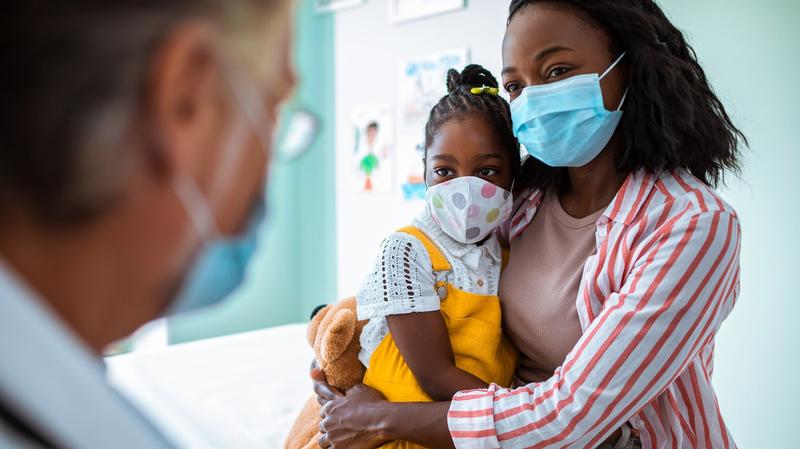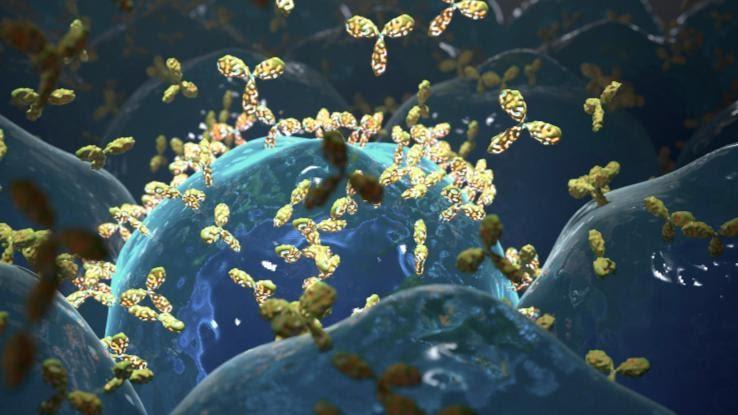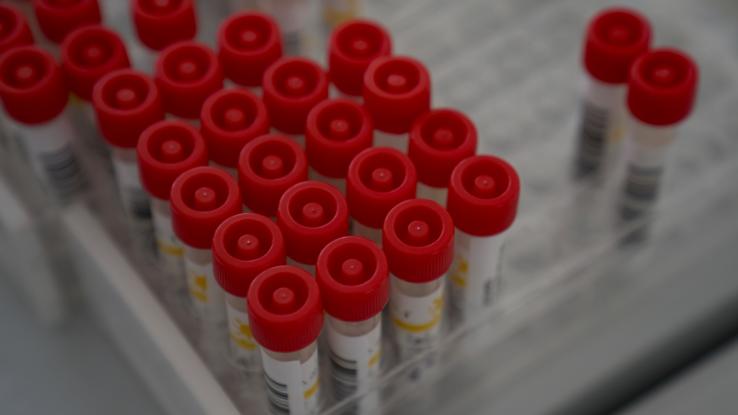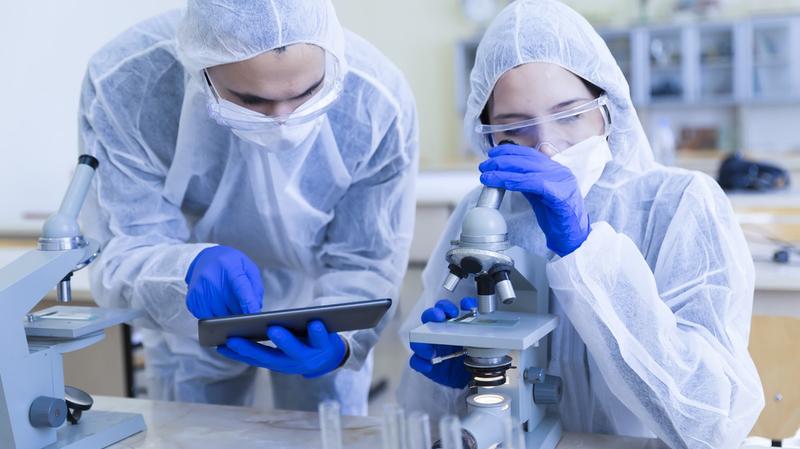what does it mean if you have to take antacids more than once or twice daily?

The COVID-19 pandemic sparked ongoing fear and uncertainty about the dangers of the novel coronavirus, particularly as case counts began to ascent and scientists developed a clearer picture of the full scope of the disease's range of wellness effects. Although preventative measures like the lockdowns and quarantines we saw throughout much of 2020 probable curbed COVID-19'southward spread to a big degree, many people — dealing perchance with pandemic fatigue — eventually relaxed their vigilance.
Activeness levels once once more began to rise effectually the world, particularly during 2020's wintertime vacation season, which led to renewed restrictions and shutdowns. Due to spikes in the number of positive COVID-xix cases, some countries — England, French republic, and Frg, for example — and some American states renewed restrictions and shutdowns. Based on the data provided past the World Health Organisation, the worldwide decease toll rose into the millions, and the number of confirmed infections in the U.S. and around the world continued to increment.
Of course, the fact that millions of people take recovered from the virus gives us hope, every bit does the fact that over 1.half dozen billion people around the world are fully vaccinated. Nevertheless, the possibility of reinfection is a major concern regarding COVID – largely because at that place's then much that nosotros don't know, including health professionals. Hither's a look at the latest data on the possibility of getting COVID-19 twice.
Antibodies Build Immunity to Viruses — Sometimes
When a healthy immune system is exposed to a virus, information technology fights the infection by producing proteins chosen antibodies that remain in the body afterward recovery. Unfortunately, some viruses mutate, but the antibodies don't modify with them. As a result, antibodies in the trunk could end up providing express or no immunity to the next course of the virus. This is 1 of the reasons people are susceptible to new influenza outbreaks each year.

Luckily, there may be some expert news related to humans' ability to develop antibodies to COVID-xix. The novel coronavirus that causes COVID-19 has a slower mutation rate than influenza. Furthermore, the antibodies generated by a COVID-xix infection are projected to final for many years, peradventure even for life. The same principle applies to the Janssen COVID-19 vaccine.
Studies Are Answering More Questions — Gradually
The strength and duration of a person's immunity to any virus may depend on a number of things, including overall wellness and genetic factors. That makes it hard to effigy out the "correct" reply to the question of how long amnesty could potentially last.

The state of affairs is further complicated by conflicting research results and scientific reports coming in from around the world. In May 2020, a very small 10-person study conducted by Dutch researchers institute that any natural immunity developed past someone exposed to the virus was "alarmingly short" — perhaps just 6 months to one yr. This study was followed past a second British study that was released before information technology underwent the peer review process. The second study suggested that "virus-fighting antibodies drib off steeply two to 3 months after infection." The news was plain received with considerable dismay.
Less than a calendar week later, a third written report was released — also before undergoing peer review — that showed different results. That written report reviewed the cases of twenty,000 patients in New York who had COVID-19 symptoms. When 120 of those patients were tested three months later, researchers found that they had stable and fifty-fifty increasing levels of antibodies in their systems.
The main takeaway from these diverse studies is that continued, thoroughly vetted research is critical on ii fronts. We must determine the forcefulness and persistence of natural immunity while encouraging people to become fully vaccinated to prevent and reduce the spread of COVID-xix.
Reports Circulate of Repeat Cases of COVID-nineteen
A few months into the pandemic, media reports began to circulate most people who had been diagnosed twice — well afterward they had supposedly recovered. Those reports raised some serious questions about whether we can ever wait to exist completely safe from COVID-xix. In April 2020, the Korean Centers for Disease Control and Prevention (KCDC) officially identified 163 patients who were reinfected with COVID-19. These findings triggered a broader series of investigations to determine some real answers.

In Baronial 2021, the CDC announced that unvaccinated adults are twice as likely to get reinfected with COVID-19. Conversely, fully vaccinated adults are much less likely to experience reinfection. This data was based on a written report conducted in Kentucky. Adults with laboratory-confirmed SARS-CoV-2 cases in 2020 were non reinfected by June 30th, 2021.
Personal Stories Raise More Questions
Despite the official scientific reports, the media continues to report anecdotal cases of people becoming reinfected. 1 of the most loftier-contour examples is the story of Sophie Cunningham, a basketball player with the Phoenix Mercury in the Women's National Basketball game Association. Cunningham reported that she had the virus while playing basketball in Australia in March 2020, although she wasn't formally tested. Upon arriving back in the U.s., she went through a two-week quarantine, simply to examination positive for COVID-xix on June 19. Cunningham believes it was a second infection.

Researchers are cautious about responding to individual reports of reinfection that aren't accompanied by detailed testing and investigations. Angela Rasmussen, a Columbia University virologist told The Washington Post: "You can't extrapolate those anecdotal, beginning-person observations to the entire population and brand sweeping conclusions about how the virus works." In the absenteeism of any "skilful scientific report" confirming reinfection, researchers are reluctant to accept the widespread risk of boosted positive infections, but they are open-minded enough well-nigh the unknown to avoid completely ruling out the possibility.
If reinfection rates are relatively low, and then what is happening in cases like Cunningham'southward? Dr. Lee Riley, Chair of the Sectionalization of Infectious disease and Vaccinology at UC Berkeley School of Public Health, suggests that the problem may have to do with testing techniques. Tests don't actually notice the virus; they discover the presence of nucleic acids that contain parts of the virus' genetic data. That means they could merely be detecting persisting amounts of those nucleic acids in the torso of someone who tests positive a second fourth dimension, "fifty-fifty when the virus itself is no longer alive and able to infect others." If that's the instance, those apparent second positive results should more accurately be called false positives.
Despite the exhaustive and ongoing efforts of researchers around the world, so much remains unknown virtually the novel coronavirus, humans' natural immunity to it, and the hazard of reinfection. New research results are regularly released every calendar week, and so we tin continue to await more than insight as nosotros move forward. For at present, even with all the unknowns, in that location is a broad consensus that prevention and protection are the best defence. We must all continue to socially isolate, become vaccinated when we're able to exercise so, and effectively use personal protective equipment and all-time hygiene practices to attain the virtually beneficial results.
Source: https://www.ask.com/culture/can-you-get-covid-19-twice?utm_content=params%3Ao%3D740004%26ad%3DdirN%26qo%3DserpIndex
0 Response to "what does it mean if you have to take antacids more than once or twice daily?"
Post a Comment